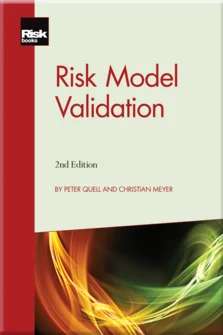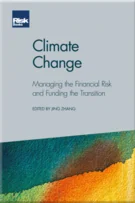Conclusion
Conclusion
Introduction
Basics of Quantitative Risk Models
Usage of Statistics in Quantitative Risk Models
How Can a Risk Model Fail?
The Concepts of Model Risk and Validation
Model Risk Frameworks
Validation Tools
Regulation
The Short-term Perspective
A Benchmark Model for Market Risk
The Medium-term Perspective
Modelling and Simulation
Data
Model Results
Conclusion
“As complexity rises, precise statements lose meaning and meaningful statements lose precision.” Lotfi A. Zadeh, as paraphrased by McNeill and Freiberger (1993)
The above quotation from Zadeh, the inventor of fuzzy logic and perhaps one of the most cited authors in applied mathematics and computer science, very well characterises the situation faced in risk modelling. On the one hand, QRMs are designed to supposedly reflect, to very high accuracy and precision, the impact of given scenarios on the portfolio or business model. Based on these results, one may then feel more comfortable when having to choose between several options – for example, with respect to allocation of available resources or capital. It may sometimes be hard to resist the temptation to micro-model all the details that come to mind when thinking about potential future scenarios and their impact on the quantity of interest – eg, the P&L of our portfolio, or the profitability of the business model. This temptation may be motivated by recent history, either in the form of a severe crisis experienced (“in the future, we need to avoid the supposed causes of the crisis”) or in the form of a benign part of the
Copyright Infopro Digital Limited. All rights reserved.
As outlined in our terms and conditions, https://www.infopro-digital.com/terms-and-conditions/subscriptions/ (point 2.4), printing is limited to a single copy.
If you would like to purchase additional rights please email info@risk.net
Copyright Infopro Digital Limited. All rights reserved.
You may share this content using our article tools. As outlined in our terms and conditions, https://www.infopro-digital.com/terms-and-conditions/subscriptions/ (clause 2.4), an Authorised User may only make one copy of the materials for their own personal use. You must also comply with the restrictions in clause 2.5.
If you would like to purchase additional rights please email info@risk.net








